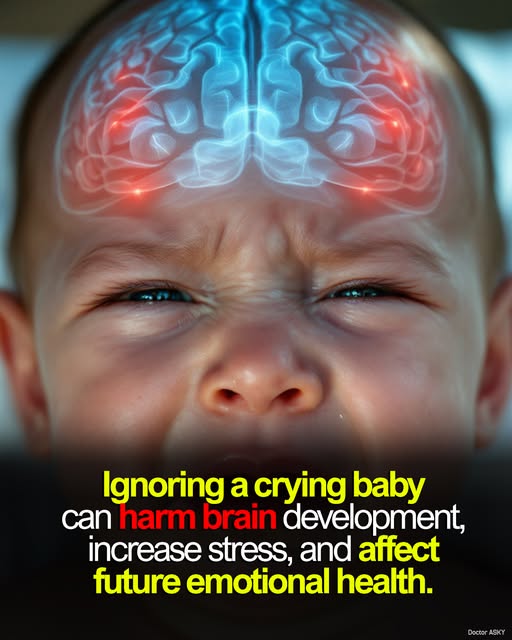Letting a baby “cry it out” has long been considered a strategy to foster independence and help infants learn to self-soothe. However, recent research in child development and neuroscience suggests that ignoring a baby’s cries—especially in the early months—can have unintended consequences on their brain development, stress regulation, and emotional well-being.
When a baby cries, it’s their only way to communicate distress or a need. Studies show that consistently unresponsive care can activate a baby’s stress response system, releasing cortisol—the body’s main stress hormone. Prolonged exposure to high cortisol levels can disrupt the development of neural circuits in the brain, particularly those involved in emotional regulation and attachment. This can lead to issues such as increased anxiety, behavioral problems, or difficulty forming secure relationships later in life.
On the other hand, responsive caregiving—picking up and soothing a crying baby—helps to build trust and a sense of safety. Over time, this fosters resilience and teaches the baby that the world is a safe, predictable place. While it’s important for children to eventually learn self-soothing, experts recommend that this process be gradual and developmentally appropriate rather than abrupt and distressing.
Disclaimer: Not every baby or family is the same, and parenting choices are deeply personal. Occasional delays in responding to a baby’s cries—due to exhaustion, necessity, or momentary unavailability—do not equate to neglect or harm. The information provided here is meant to highlight general scientific findings, not to judge or criticize individual parenting decisions. If you have concerns about your baby’s sleep or emotional health, consult a pediatrician or child development specialist.
